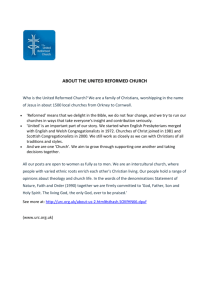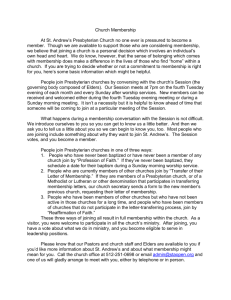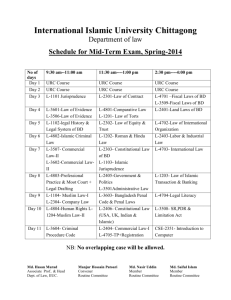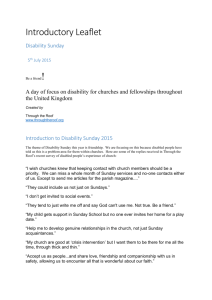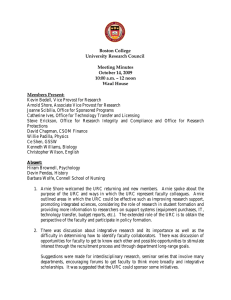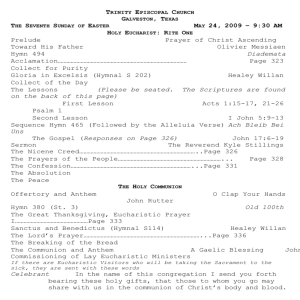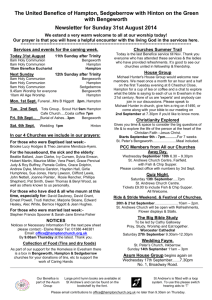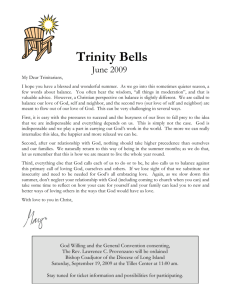Family News June 2014 At last week`s Church meeting I spoke
advertisement
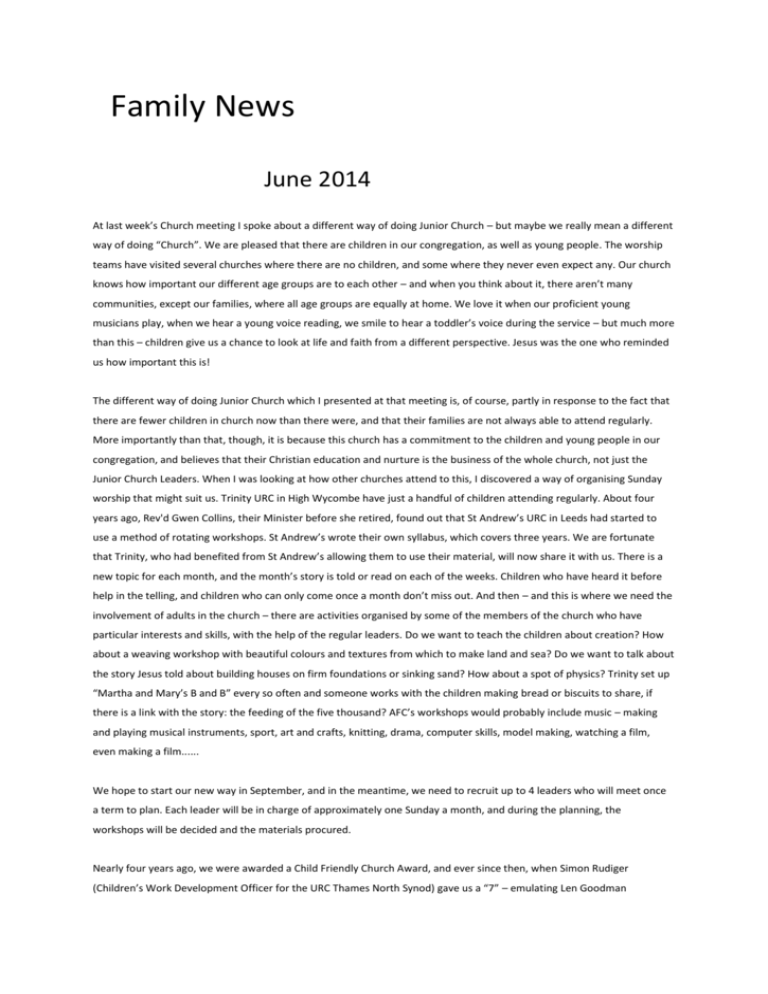
Family News June 2014 At last week’s Church meeting I spoke about a different way of doing Junior Church – but maybe we really mean a different way of doing “Church”. We are pleased that there are children in our congregation, as well as young people. The worship teams have visited several churches where there are no children, and some where they never even expect any. Our church knows how important our different age groups are to each other – and when you think about it, there aren’t many communities, except our families, where all age groups are equally at home. We love it when our proficient young musicians play, when we hear a young voice reading, we smile to hear a toddler’s voice during the service – but much more than this – children give us a chance to look at life and faith from a different perspective. Jesus was the one who reminded us how important this is! f The different way of doing Junior Church which I presented at that meeting is, of course, partly in response to the fact that there are fewer children in church now than there were, and that their families are not always able to attend regularly. More importantly than that, though, it is because this church has a commitment to the children and young people in our congregation, and believes that their Christian education and nurture is the business of the whole church, not just the Junior Church Leaders. When I was looking at how other churches attend to this, I discovered a way of organising Sunday worship that might suit us. Trinity URC in High Wycombe have just a handful of children attending regularly. About four years ago, Rev'd Gwen Collins, their Minister before she retired, found out that St Andrew’s URC in Leeds had started to use a method of rotating workshops. St Andrew’s wrote their own syllabus, which covers three years. We are fortunate that Trinity, who had benefited from St Andrew’s allowing them to use their material, will now share it with us. There is a new topic for each month, and the month’s story is told or read on each of the weeks. Children who have heard it before help in the telling, and children who can only come once a month don’t miss out. And then – and this is where we need the involvement of adults in the church – there are activities organised by some of the members of the church who have particular interests and skills, with the help of the regular leaders. Do we want to teach the children about creation? How about a weaving workshop with beautiful colours and textures from which to make land and sea? Do we want to talk about the story Jesus told about building houses on firm foundations or sinking sand? How about a spot of physics? Trinity set up “Martha and Mary’s B and B” every so often and someone works with the children making bread or biscuits to share, if there is a link with the story: the feeding of the five thousand? AFC’s workshops would probably include music – making and playing musical instruments, sport, art and crafts, knitting, drama, computer skills, model making, watching a film, even making a film...... c We hope to start our new way in September, and in the meantime, we need to recruit up to 4 leaders who will meet once a term to plan. Each leader will be in charge of approximately one Sunday a month, and during the planning, the workshops will be decided and the materials procured. c Nearly four years ago, we were awarded a Child Friendly Church Award, and ever since then, when Simon Rudiger (Children’s Work Development Officer for the URC Thames North Synod) gave us a “7” – emulating Len Goodman from 'Strictly Come Dancing' - we have been working out what that means to us. It would be lovely to have three times as many children and young people worshipping with us every Sunday, but there are no easy answers here. During the week, we play host to Fun at One for children under school age with a parent or often an au pair, members of the Girl Guide movement, and young children who come to music and movement activities. Once a year, just before Christmas, we organise a Christingle party, which is hugely popular with families who want their children to understand a little of what Christmas really means. We are fortunate that children come through our doors, for whatever reason. We must do our best to ensure that they experience church as a welcoming place. c Not all children come to our churches – but nearly all children go to school. So if we take seriously our duty to tell children about the love of God, rather than wait for them to come to us, perhaps we should be going to where they already are? I have written about Open the Book and taking Bible stories into schools later on in this Family News. c We all believe that the Church’s work for children and young people is crucial. We often hear that the children are our future. They are also surely a large part of our present. c Liz Waumsley
